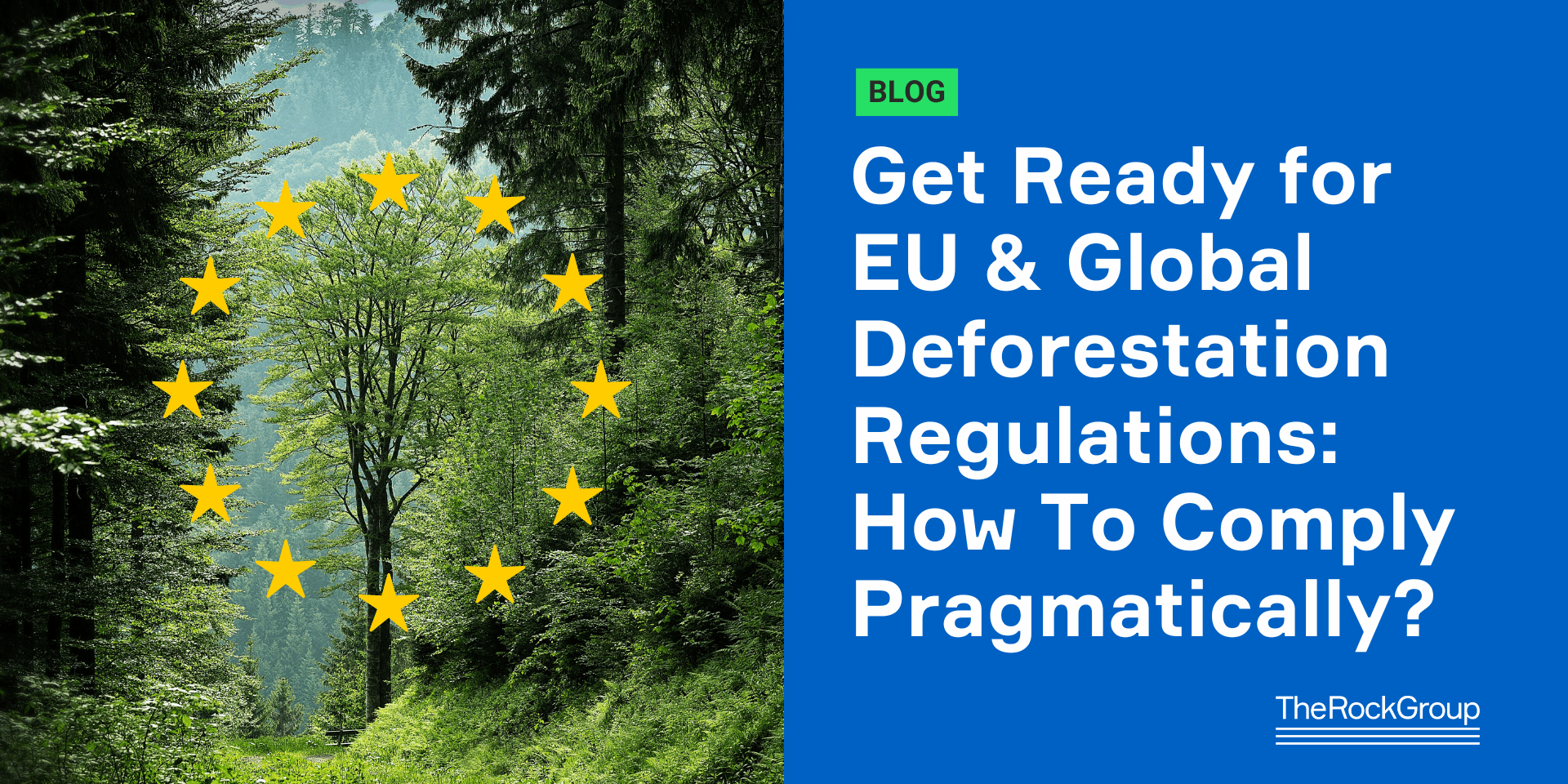The EU Deforestation-free Regulation: What it Means for Your Business and How to Comply
The EU Regulation on Deforestation-free Products (EUDR) is set to become one of the most significant and complex policies reshaping global supply chains. Large and medium-sized companies will need to comply by 30 December 2025, with micro and small enterprises following on 30 June 2026, if the EU does not decide to postpone its implementation.
This regulation requires that any operator or trader placing in-scope commodities and their derivatives on the EU market must be able to prove that:
- the products do not originate from recently deforested land, and
- they have not contributed to forest degradation.
While the EU is still deciding to delay the EUDR by one year or even weaken the legislation, it is essential to prepare now. Use it as an opportunity to strengthen your approach to biodiversity, nature, and the communities impacted by your value chain.
In fact, the EUDR framework can be leveraged to develop or review your other nature-related disclosures, such as the Taskforce on Nature-related Financial Disclosures (TNFD) and Science Based Targets Network (SBTN). It will also help you comply with other global deforestation legislations like the Lacey Act in the United States, AFR100 in several countries in Africa like South Africa, Ivory Coast and Kenya, and the Forest Code in Brazil.
Three Key Steps for EUDR Compliance:
-
Collect verifiable information
Companies must collect verifiable data on shipments, including:
- product descriptions, quantities, and supplier/buyer information,
- area of origin (country, geolocation of all production plots, and harvest/production dates),
When a company claims having deforestation-free commodities it needs to supply ‘deforestation-free’ evidence (like historical land use records and geo-tagged photo’s) and legal evidence (like land title, harvest permits and compliance with local laws)
-
Conduct risk assessments taking both deforestation and biodiversity and nature into account:
Risk assessments should go beyond forests and consider biodiversity and nature. Factors include:
- Presence of forests, deforestation/forest degradation, indigenous people in country
- Protected areas and key biodiversity areas other than forests, like grasslands and mangroves
- Ecosystems under threat (e.g., savannahs, peatlands, wetlands)
- Land conversion of high biodiversity value
- Reliability of information
- Governance characteristics
- Supply chain complexity, mixing, processing
- History of non-compliance, substantiated concerns
- Potential certifications and voluntary schemes (but they do not replace your risk assessment)
Only when the risk assessment shows no or negligible risk of deforestation can in-scope products be placed on the EU market.
-
Mitigate risks through supplier engagement
EUDR encourages direct engagement with suppliers. This creates an opportunity for building shared value. Ways to take action include:
- assessing suppliers for their ability to meet EUDR requirements and engagement with biodiversity and nature
- understanding suppliers’ local knowledge, identifying potential conflicts with biodiversity conservation or indigenous rights, and co-designing solutions that balance productivity with ecological integrity including biodiversity-friendly practices such as agroforestry, nature-positive production methods, and the transition to low-impact inputs and regenerative models,
- supporting suppliers with traceability systems and land use mapping,
- embedding EUDR and respect for biodiversity and nature obligations into contractual agreements
- aligning supplier practices with your organisation’s broader biodiversity and nature goals.
How to use EUDR as a strategic opportunity
Too often, new regulation is seen only as a burden. However, the EUDR offers a framework to rethink your value chain and align business practices with ecological resilience. By leveraging compliance steps, companies can:
- reduce their impact on biodiversity and nature, and indirectly affected communities,
- align with global reporting standards (TNFD, SBTN), and other global deforestation legislation
- strengthen relationships with suppliers, and
- demonstrate leadership in sustainable sourcing.
In other words, EUDR compliance can be the starting point for a path towards compliant nature-positive business strategies.
Do you need support with EUDR compliance or do you want to go beyond compliance and integrate biodiversity and nature into your business strategy? At TheRockGroup we help companies worldwide with tailor-made advice on EUDR compliance including due diligence assessment, stakeholder management and reporting!
FAQ
What is EUDR?
EUDR stands for the European Union’s Regulation on Deforestation-free Products. It’s a new EU law aimed at ensuring that products sold in the EU do not contribute to deforestation or forest degradation anywhere in the world.
Will EUDR be delayed?
For now, large and medium companies have to comply with the EUDR as of 30 December 2025, and micro and small enterprises as of 30th of June 2026. The Commission’s proposal for another 1-delay, announced 23 September this year, needs approval by the European Parliament and the European Council, which is not guaranteed.
Nevertheless, around the same time last year the Commission also proposed to delay the implementation of the EUDR with one year and before the end of 2024, both the Parliament and the Council agreed and the 1-year delay was a fact. As such, chances are that the EUDR will once again, be delayed.
Who does EUDR apply to?
For now, the EUDR applies to any operator/trader who places commodities and their derivatives (cattle, wood, cocoa, soy, palm oil, coffee, rubber and their derived products like chocolate, leather, or furniture) on the EU market, or exports from it.
- Operators are companies or individuals who, in the course of their commercial activities, place the above-mentioned products on the EU market for the first time, whether for distribution, consumption or use, or export them outside the EU.
- Traders are other companies who make the above-mentioned products available on the EU market. F.e by selling, distributing, or using them commercially. Whether a trader is subject to due diligence obligations depends on whether the trader is an SME or not as for SMEs there are lighter due diligence requirements.







